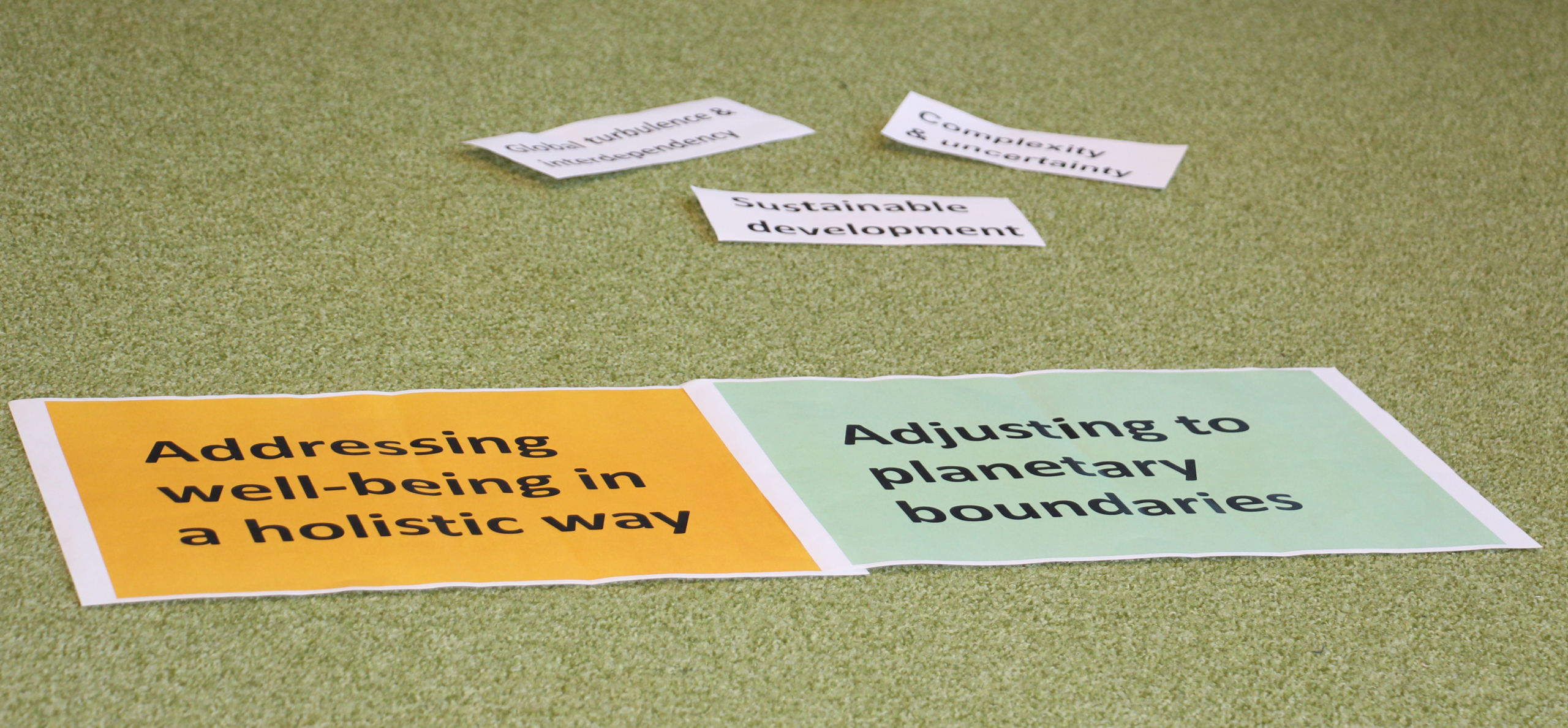This summer and autumn, Sitra’s research team has been busy writing an extensive discussion paper which presents a vision for a sustainable well-being society. In that vision, the key goal of societies is to safeguard the overall sustainable well-being of their citizens. The Earth’s carrying capacity is at the core of all human activities, and we cannot therefore push our natural environment beyond its limits. Other basic principles and enablers of building a sustainable society include an economy that regenerates rather than consumes, empowered individuals and communities, new competencies required in a complex world and a leadership approach that adapts to change and includes citizens in decision-making. Achieving these will strengthen the resilience of societies – their ability to recover from unforeseen crises – and allow them to come out stronger in the end. After all, crises are a more likely phenomena than before in our current world of complex systems and economic interdependencies.
The discussion paper includes future scenarios for different sectors of society which are based on adhering to the vision’s principles for a sustainable well-being society: what would work be like if better care was taken of the mental well-being of employees in the workplace? How can we adopt lifestyles that will help us consume fewer natural resources without compromising our standard of living?
A handful of researchers, no matter how talented, cannot write a vision for a sustainable well-being society on their own. That is why Sitra’s research team has hosted two workshops in the past two weeks, aimed at gathering ideas from a range of experts for use in developing the vision. In the first workshop held in week 39, the members of the sustainable development expert panel and Sitra’s board of directors commented on the basic principles of the vision and discussed the global role of advanced countries in the promotion of sustainable well-being.
The visiting experts considered the vision a success, but also presented some new ideas. In their opinion, the vision should take even better account of the radical effects that new technologies have on society. Everyone remembers to highlight technology’s role when envisioning the future, but only a few of us truly comprehend what type of future technologies could ever have the same volume of change on our society as the internet is currently having.
The workshop participants’ comments on the global role of advanced countries in the promotion of sustainable well-being were that the West is no longer at the helm, but still has potential to exert influence through the dissemination of technological, social and cultural innovations. Good governance is a useful export product, and the world still watches more movies made in Hollywood than in Bollywood. But let’s not forget that the sun rises from the East. We should keep an open mind about embracing good things that originate from emerging countries.
The first workshop also involved extensive discussion on how much value should be placed on a vision that looks 20 years into the future at a time when the world is facing new crises on a daily basis. The key concern was that in times of crisis the attention of decision-makers is fixed on the near future, forgetting that the need to look far into the future never goes away. In a complex and ever-changing world, a common positive vision towards which societies can aspire is very much in demand. In the middle of a constant barrage of bad news, there is also a need for a brighter future scenario that brings hope to people.
On Tuesday 30 September, staff from Sitra convened in a workshop to take a closer look at the current content of the vision and to provide their own expert opinions on how it should be developed and what methods could be used to implement the principles of the vision in practice. While the main goals of the vision are promoting a cultural transition towards a sustainable society and enhancing the decision-makers’ ability to control this transition, it also provides building blocks for Sitra’s world view and principles to guide Sitra’s work: how to steer our daily efforts towards making the vision a reality? Concrete measures for driving the transition towards a sustainable well-being society are developed in projects carried out under Sitra’s focus areas.
Sitra’s first discussion paper on the topic was published in 2013. The discussion paper currently under preparation, intended to update and supplement the previous discussion paper, is scheduled for completion in the spring of 2015, but the first summarised version will be published sometime in the autumn of 2014. The progress of the discussion paper can be followed via this blog.





Recommended